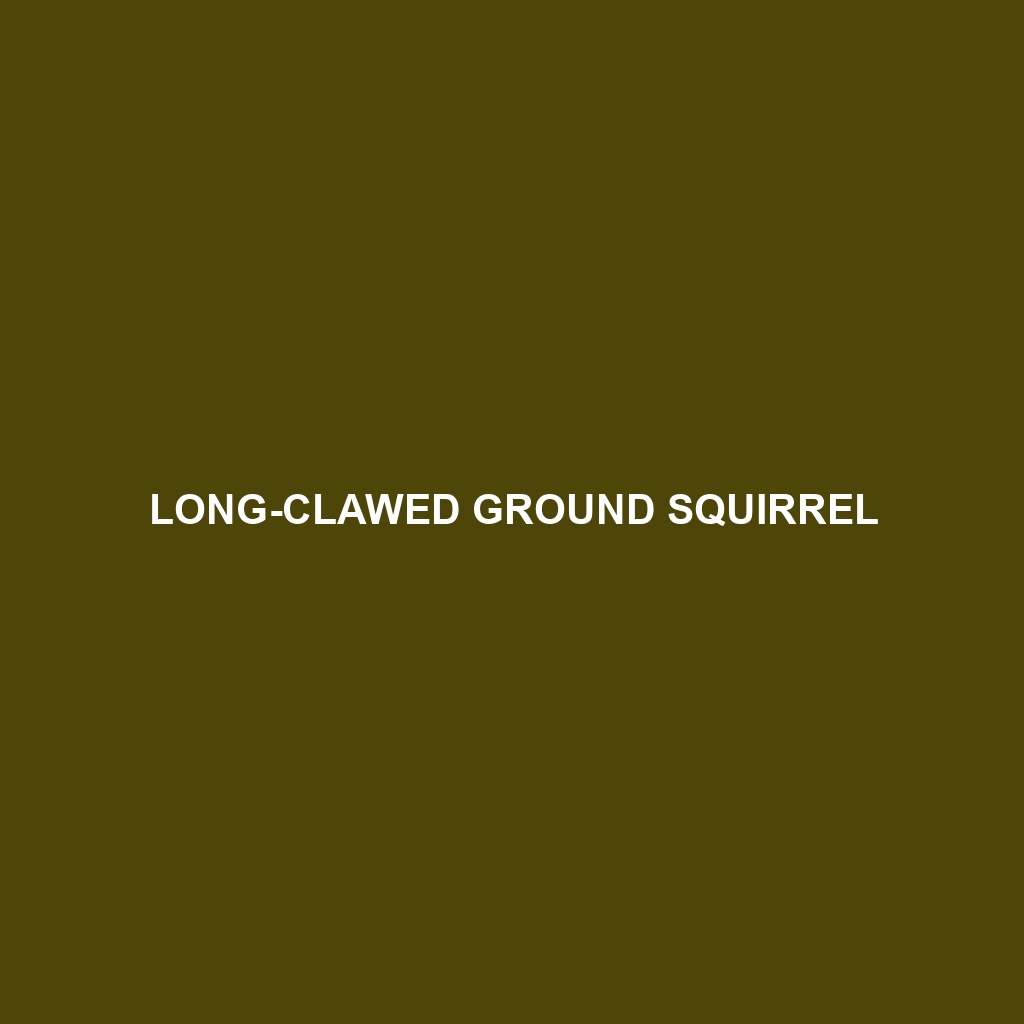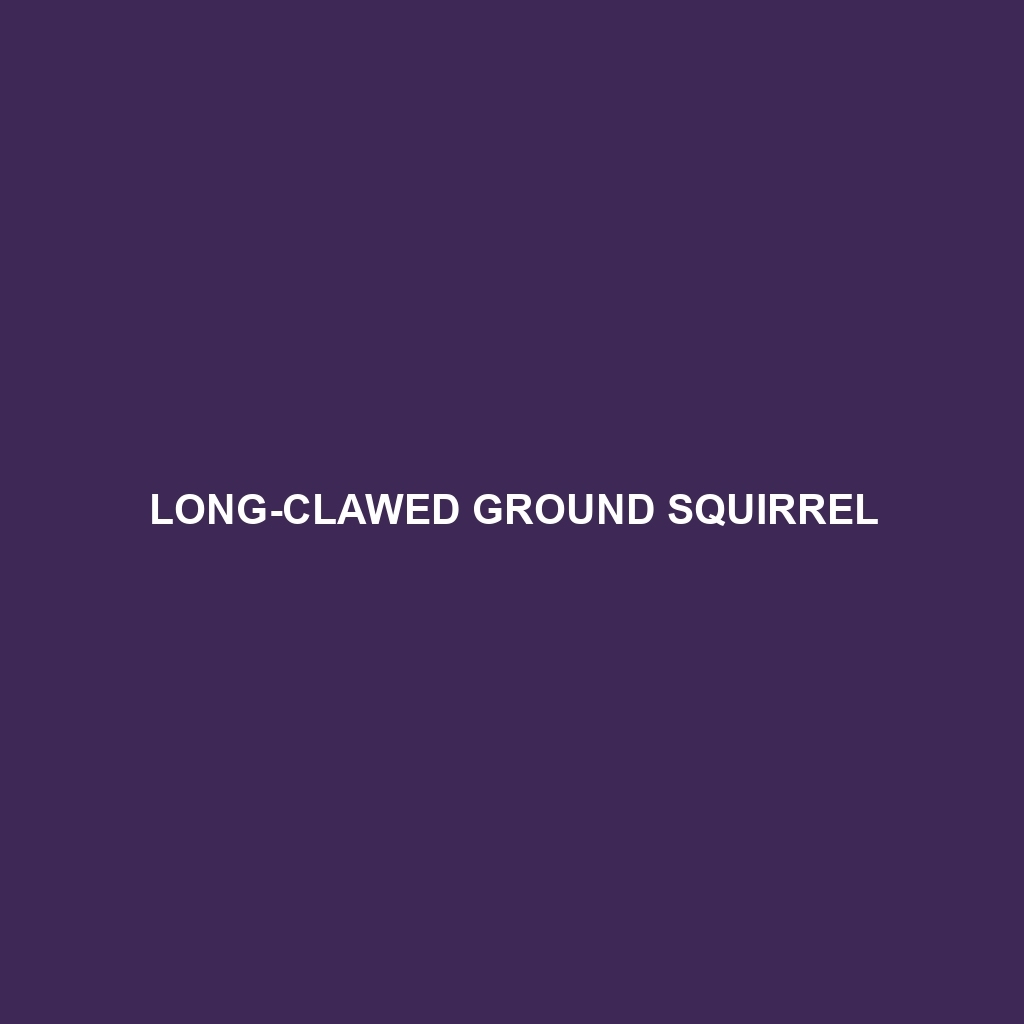Discover the intriguing world of Hall's Pocket Gopher, a nocturnal rodent native to the grasslands and shrublands of the western United States. This unique species is recognized for its impressive tunneling abilities, distinct cheek pouches, and vital role in soil aeration and nutrient cycling. Learn about its habitat, diet, and conservation status as we explore the remarkable ecological contributions of this vulnerable creature.
Tag: burrowing animals
Strecker’s Pocket Gopher
Discover the fascinating world of the **Strecker's Pocket Gopher**, a vulnerable species found primarily in the grasslands of Texas and Oklahoma. Known for their impressive burrowing skills and herbivorous diet, these nocturnal creatures play a vital role in aerating the soil and promoting plant growth, while their underground tunnels benefit a variety of wildlife. Explore their habitat, behavior, and conservation status to understand the challenges they face in a changing environment.
Southern African Springhare
Discover the fascinating Southern African Springhare (*Pedetes capensis*), a unique nocturnal rodent native to the grassy plains and scrublands of southern Africa. With its impressive leaping ability, tufted tail, and herbivorous diet, this intriguing creature plays a crucial role in its ecosystem, although habitat loss poses emerging threats. Learn more about its physical characteristics, behavior, and conservation status in our detailed blog post.
Smoky Pocket Gopher
Discover the fascinating world of the Smoky Pocket Gopher (<i>Geomys personatus</i>), a medium-sized rodent native to the sandy soils of the central United States. Known for their impressive burrowing skills, these solitary creatures play a vital role in enhancing soil health and supporting plant diversity in their grassland habitats. Learn about their behavior, diet, and the conservation challenges they face as their environments dwindle.
Goldman’s Pocket Gopher
Discover the fascinating world of Goldman's Pocket Gopher (<i>Thomomys goldmani</i>), a unique rodent native to the grasslands of central and southern Mexico. Renowned for its extensive burrowing systems and herbivorous diet, this vulnerable species plays a vital role in soil aeration and ecosystem health. Learn about its physical traits, solitary behavior, and the conservation efforts needed to protect its diminishing habitat.
Merriam’s Pocket Gopher
Explore the intriguing world of Merriam's Pocket Gopher, a solitary burrower native to the western regions of North America. This remarkable creature, known for its extensive tunnel systems and unique feeding habits, plays a vital role in soil aeration and the ecological balance of its habitat. Discover its physical characteristics, diet, and conservation status in this informative blog post.
Volcan de Toluca Pocket Gopher
Discover the fascinating world of the Volcan de Toluca Pocket Gopher (*Thomomys bottae*), a unique species adapted to the alpine regions of Mexico. Learn about its nocturnal habits, essential role in soil aeration, and the challenges it faces due to habitat loss. This vulnerable creature's remarkable burrowing behavior and intriguing diet make it a vital part of its ecosystem.
Long-clawed Ground Squirrel
Discover the fascinating world of the Long-clawed Ground Squirrel, a medium-sized rodent native to the arid landscapes of Central Asia. This unique species is known for its long claws, social behavior, and vital role in aerating the soil. Learn about its habitat, diet, reproductive habits, and conservation status, as well as intriguing facts about its hibernation abilities and vocal communication.
Long-clawed Ground Squirrel
Discover the fascinating world of the Long-clawed Ground Squirrel, a medium-sized rodent native to the arid landscapes of Central Asia. This unique species is known for its long claws, social behavior, and vital role in aerating the soil. Learn about its habitat, diet, reproductive habits, and conservation status, as well as intriguing facts about its hibernation abilities and vocal communication.
Least Chipmunk
Discover the fascinating world of the Least Chipmunk (<i>Tamias minimus</i>), the smallest chipmunk species, known for its distinctive stripes and curious behavior. Found in diverse North American habitats, these diurnal creatures play a vital role in their ecosystems as seed dispersers while showcasing remarkable adaptability and unique feeding habits. Learn about their intriguing characteristics, reproductive patterns, and conservation status in this insightful blog post.








